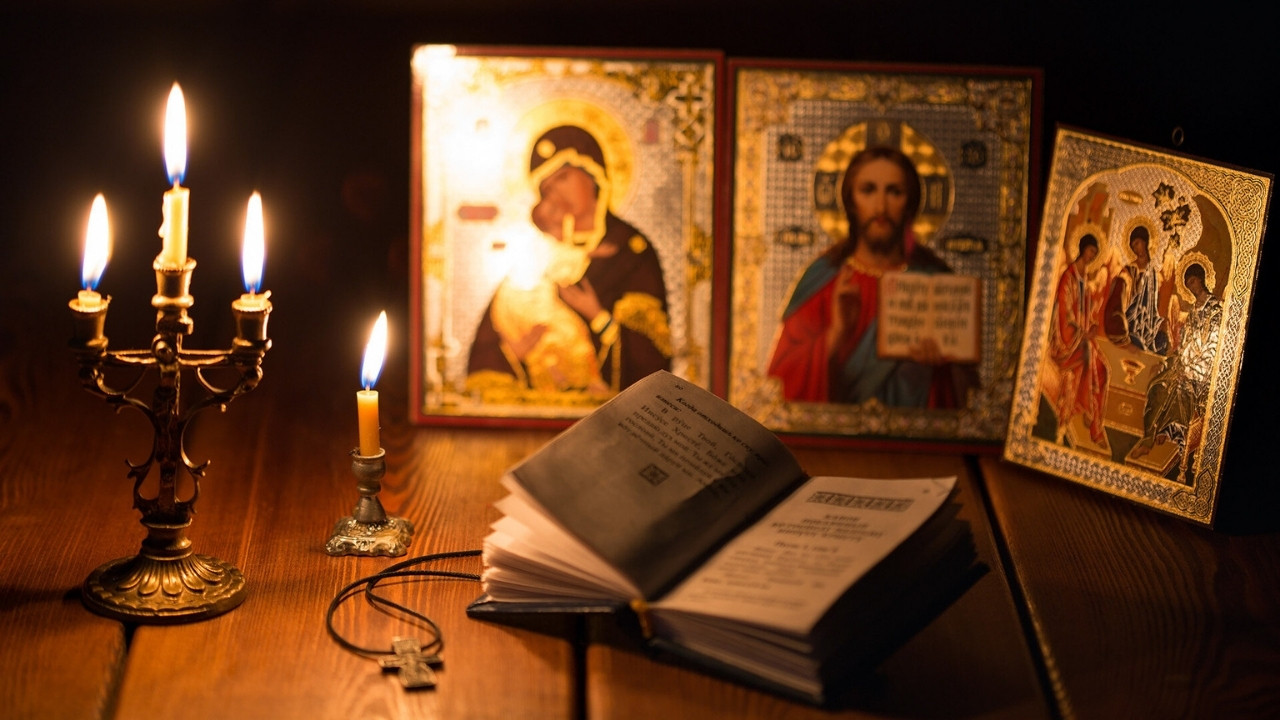
Orthodoxy is a term that often sparks curiosity. What does it mean? Orthodoxy refers to the adherence to accepted norms, especially in religion. In Christianity, it signifies the Eastern Orthodox Church, known for its rich traditions and deep history. This church, with roots tracing back to the apostles, has a unique way of worship and a distinct calendar. Did you know the Orthodox Church celebrates Christmas on January 7th? Or that it uses icons in worship? These icons are not just art; they are windows to the divine. Orthodoxy also emphasizes community and the sacraments, like baptism and communion. Ready to learn more? Let's dive into 33 fascinating facts about Orthodoxy!
Origins of Orthodoxy
Orthodoxy, often referred to as Eastern Orthodoxy, is one of the oldest branches of Christianity. Its rich history and traditions have shaped the faith of millions worldwide.
- The term "Orthodoxy" means "right belief" or "correct worship" in Greek.
- Eastern Orthodoxy traces its roots back to the early Christian communities established by the apostles.
- The Great Schism of 1054 split Christianity into Eastern Orthodoxy and Roman Catholicism.
- The Ecumenical Patriarch of Constantinople is considered the spiritual leader of Eastern Orthodox Christians.
Beliefs and Practices
Orthodox Christianity holds a unique set of beliefs and practices that distinguish it from other Christian denominations.
- The Nicene Creed is a central statement of faith in Orthodoxy.
- Orthodox Christians believe in the Holy Trinity: Father, Son, and Holy Spirit.
- Icons, or religious images, play a significant role in Orthodox worship and are venerated, not worshipped.
- The Divine Liturgy is the primary worship service in Orthodoxy, similar to the Mass in Catholicism.
- Fasting is an important spiritual discipline, with specific periods like Great Lent observed annually.
- The Orthodox Church follows the Julian calendar for liturgical purposes, which differs from the Gregorian calendar used by most of the world.
Holy Scriptures and Teachings
The Bible and other sacred texts are foundational to Orthodox teachings and practices.
- The Septuagint, a Greek translation of the Hebrew Bible, is the version used in Orthodox Christianity.
- Church Fathers, such as St. John Chrysostom and St. Basil the Great, are highly revered for their theological writings.
- The Philokalia is a collection of texts written by Orthodox Christian mystics on prayer and spiritual life.
- Holy Tradition, alongside Holy Scripture, is considered a source of divine revelation in Orthodoxy.
Sacraments and Rituals
Sacraments, also known as Holy Mysteries, are vital to the spiritual life of Orthodox Christians.
- Baptism is the first sacrament, usually performed by full immersion.
- Chrismation, or confirmation, immediately follows baptism and involves anointing with holy oil.
- The Eucharist, or Holy Communion, is considered the true body and blood of Christ.
- Confession, or the sacrament of penance, involves admitting sins to a priest for absolution.
- Marriage is a sacrament that blesses the union of a man and woman.
- Holy Orders is the sacrament through which men are ordained as deacons, priests, or bishops.
- Anointing of the Sick, also known as Holy Unction, is performed for physical and spiritual healing.
Festivals and Holy Days
Orthodox Christians celebrate numerous festivals and holy days throughout the year.
- Pascha, or Easter, is the most important feast, celebrating the resurrection of Jesus Christ.
- Christmas, known as the Nativity of Christ, is celebrated on January 7th by those following the Julian calendar.
- The Feast of Theophany, or Epiphany, commemorates the baptism of Jesus in the Jordan River.
- The Dormition of the Theotokos, or the Assumption of Mary, is celebrated on August 15th.
- Saints' feast days are observed throughout the year, honoring the lives and contributions of various saints.
Monasticism and Asceticism
Monasticism has a profound influence on Orthodox spirituality and practice.
- Mount Athos in Greece is one of the most significant monastic centers in Orthodoxy.
- Monks and nuns dedicate their lives to prayer, fasting, and manual labor.
- The Jesus Prayer, "Lord Jesus Christ, Son of God, have mercy on me, a sinner," is a central practice in Orthodox monasticism.
- Asceticism involves self-discipline and renunciation of worldly pleasures to achieve spiritual growth.
Global Presence
Orthodox Christianity has a significant presence worldwide, with diverse cultural expressions.
- Russia has the largest population of Orthodox Christians, followed by Ethiopia and Greece.
- The Ethiopian Orthodox Tewahedo Church is one of the oldest Christian communities, with unique traditions and liturgies.
- The Orthodox Church in America (OCA) is an autocephalous church, meaning it is self-governing, and has a growing presence in the United States.
Final Thoughts on Orthodoxy
Orthodoxy is rich with history, culture, and tradition. From its ancient roots to its modern practices, it offers a unique perspective on faith and community. The iconography, liturgical music, and festivals are not just rituals but expressions of deep spiritual beliefs. Understanding these aspects can provide a deeper appreciation for the Orthodox Church and its followers. Whether you're exploring for personal interest or academic purposes, these facts offer a glimpse into a world that has shaped millions of lives. Remember, every tradition has its own beauty and significance. Orthodoxy is no exception. So next time you encounter an Orthodox Christian or pass by an Orthodox Church, you'll have a bit more insight into what makes this faith so enduring and meaningful. Keep learning, stay curious, and appreciate the diversity that enriches our world.
Was this page helpful?
Our commitment to delivering trustworthy and engaging content is at the heart of what we do. Each fact on our site is contributed by real users like you, bringing a wealth of diverse insights and information. To ensure the highest standards of accuracy and reliability, our dedicated editors meticulously review each submission. This process guarantees that the facts we share are not only fascinating but also credible. Trust in our commitment to quality and authenticity as you explore and learn with us.
